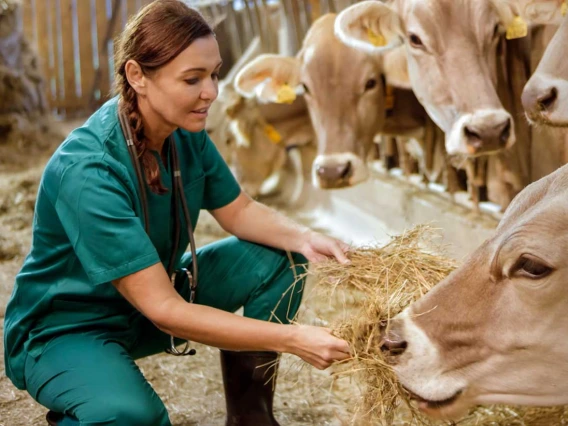Food Safety
Undergraduate Certificate
Quick Facts

Top 1%
of all Higher-Ed
Institutions
- Center for World University Rankings, 2024
#1
In Best Value Among
Arizona's Public Universities
- Payscale, 2024
The Food Safety Undergraduate Certificate is ideal for students focused on health and agriculture, food industry representatives, or anyone interested in tackling current and future food safety challenges facing Arizona, the U.S., and the world. The certificate program is a dynamic education and experiential training opportunity that helps address the growing need for professionals to ensure the safety of over 1 billion meals daily for 330 million U.S. consumers.
This certificate introduces you to a foundational Microbiology course, Food Safety and Microbiology and Food Safety Laws & Legal Practices. You’ll enroll in one food safety elective course and acquire valuable experiential learning by enrolling in one to three practicum units, which can be completed online. Alternatively, you can identify food safety-related opportunities in your area of interest (internship in industry or independent study in a research laboratory, must be food safety related).
Upon completing this unique and relevant combination of academics and experiential learning, you’ll be ready to join the Food Safety workforce as a meaningful contributor. You can advance your critical food safety knowledge and skills to help you immediately apply novel food safety approaches in the industry. Additionally, this program can complement your primary study area if you seek a degree.
There is a Practicum (experiential learning) requirement of 1 credit that can be fully online or in-person.
*Residents of some U.S. Territories may not be eligible. Please see our Eligibility & State Authorization page for more information.
You must complete 13 units to attain this certificate, with up to 6 units double-dipped. MIC 205A or MIC 204, 3 units of a Food Safety elective, must be completed. In addition, 1-3 units of Practicum credit or other Food Safety-related internship, independent study, or research is also required. Core courses for this certificate program include:
(has prereqs) This course introduces the diverse lifestyles of bacteria, viruses, fungi, and protozoan parasites, their importance in the biosphere, and their roles in human and animal diseases.
This course is also a tier 2 GenEd and is being developed as a Building Connections course under the GenEd Refresh for future catalog years. This course can be double-dipped as a GenEd and for this certificate. This course explores the impact of microbes on societies worldwide from the disciplines of One Health and the social sciences. The interactions of microbes at the human-animal-environment interface will be examined through the One Health science disciplines.
Explore food safety and microbial contamination of food, including potential disease-causing microbes, spoilage microorganisms, and prevention methods by food category. Procedures to ensure safe food production by food type will be analyzed and applied in case studies.
Learn about food safety policy, including the laws and associated implementing regulations and how they are developed and enforced. You can use this knowledge to bridge the gap between stakeholders and facilitate the development of compliant food products.
Outcomes
Skills
Earning your Undergraduate Certificate in Food Safety will build core skills, including:
- Critical thinking
- Cultural competency
- Data analysis
- Ethics and social responsibility
- Evidence-based interventions
- Problem solving
- Public speaking
- Regulatory compliance
- Stakeholder engagement
- Technical writing
Potential Career Paths
Graduates of the Undergraduate Certificate in Food Safety program will be prepared to pursue the following careers:











